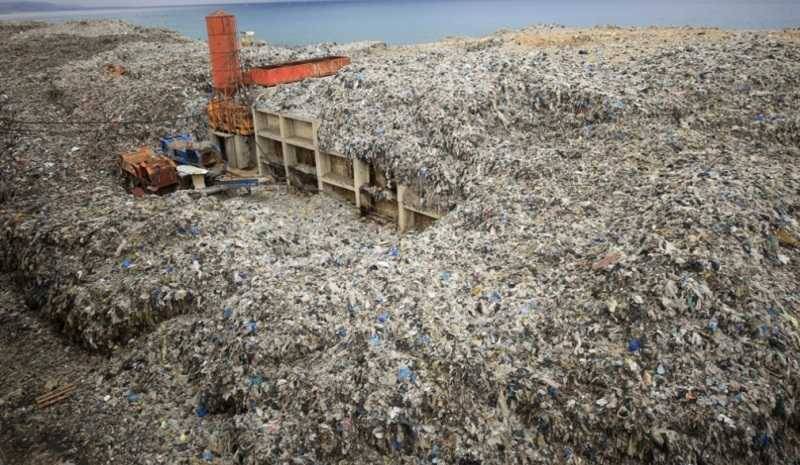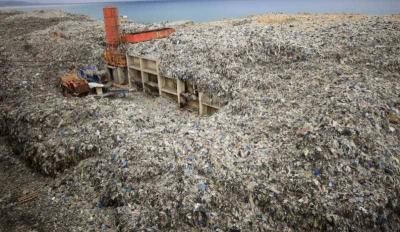The waste crisis is worsening day by day since the onset of the economic crisis, posing a serious threat to the general environment and, consequently, to the health of citizens. This situation is exacerbated by the inability to manage the large quantities of waste produced by both Lebanese and Syrian refugees, with only 8% of waste treatment facilities currently operational. This raises fears that it could trigger the crisis anew!
A source familiar with the issue explains that "Lebanon has been experiencing a significant crisis in waste management since the financial crisis began, especially following the port explosion and due to Syrian displacement. Currently, only 8% of the waste treatment facilities across Lebanon are functioning, while the others are out of service." Facilities such as those in Karantina and Coral in Beirut have halted operations due to damage from the port explosion and have yet to be refurbished. Consequently, only 8% of waste is being processed, with the remainder ending up in illegal dumps or sanitary landfills.
The source confirms that Lebanon has 8 functioning sanitary landfills, but their limited capacity shortens their lifespan, indicating we are approaching a new crisis. For instance, the landfills in Jdeideh and Costa Brava in Beirut, which were designed to handle a certain amount of waste, are now being overwhelmed, shortening their operational life even further.
According to the source, Lebanon is facing a significant crisis, exacerbated by the country's economic conditions and dollarization. Municipalities are receiving dues in Lebanese pounds, which burdens them and hinders their ability to fulfill their responsibilities, leading most waste to be dumped in illegal sites.
Since 2018, Lebanon has been on a steep decline. The Ministry of Environment is attempting in various ways to address the situation through international support and donors to finance this sector, but stability takes a long time to achieve.
#### The Solution Relies on Three Pillars
Regarding solutions to absorb the crisis before it explodes, the source indicates that the Ministry of Environment has prepared a plan from 2023 to 2026 based on three pillars: governance, enhancement of source separation, and waste conversion, along with investment in treatment facilities. For the first pillar (governance), Law 80/2018 on waste management mentioned the establishment of a National Authority for Solid Waste Management, which is crucial but currently non-existent. The decree for its establishment is ready, having been approved by the Council of Ministers, and the State Consultative Council has provided its comments, which are being considered. Service areas have been identified, dividing Lebanon into 17 service points that will appear in the strategy being prepared by the Ministry of Environment.
Additionally, the cost recovery law is essential for funding part of the waste management, imposing a service fee for waste management that industrial, commercial, and residential entities would pay. This law has moved from the Council of Ministers to Parliament for discussion and is vital for revitalizing the sector, especially under the current conditions and the inability of municipalities to manage it.
The strategic plan also requires each service area to prepare a master plan, which has begun, partially funded by the World Bank, the European Union, or the United Nations (Habitat), focusing on around 14 service areas. Furthermore, an information management system will be established to ensure the ministry can obtain data on waste quantities, management processes, and disposal methods.
For the second pillar, the focus is on reducing waste at the source, increasing sorting centers and recycling facilities, and encouraging initiatives like "Yalla N7awelha" (Let's Convert It) and other organizations. The Ministry of Environment aims to promote and create sorting centers across all Lebanese regions through projects funded by external parties.
The third pillar involves investments. As previously mentioned, only 8% of the facilities are operational, located in Zahle, Baalbek, Choueifat, and Jezzine. These large facilities are operating at relatively low capacity, processing roughly 440 tons daily out of approximately 6000 tons generated. Therefore, efforts are underway with donors, including the World Bank, European Union, and UNDP, to secure funding to improve these facilities and create sanitary landfills in various regions to accommodate this waste.
#### Investment is the Key to the Solution
Thus, the plan relies on three pillars, with investment being of utmost importance, as the cost for constructing and maintaining facilities and landfills requires funding. There must be a source to pay the service fees. Currently, Lebanese law does not specify who should bear the costs of treatment and disposal, which is why we have introduced the cost recovery law—crucial for governing this sector. Just as citizens pay for phone, water, and electricity services, the same should apply to waste management. Citizens generate waste and should pay for its appropriate management and treatment.
Presently, this structure is lacking, but the approval of the cost recovery law will be foundational for managing this sector. The Ministry of Environment is actively working on this, and a proposal has passed through the Council of Ministers to Parliament. The proposed law states that the costs will be paid by commercial and industrial entities at a much higher rate than residential areas, with fees ranging from 2 to 8 USD monthly in rural areas and from 3 to 12 USD in urban areas. Conversely, costs for industries and commercial establishments could reach 1800 USD monthly for hotels and 1200 USD for schools, hospitals, malls, and supermarkets. Thus, the heavy financial burden will fall on the commercial and economic sectors, while residential areas will incur lower fees for this service, aiming to recover the costs of this sector for sustainability and survival, as reported by "Nidaa al-Watan."




